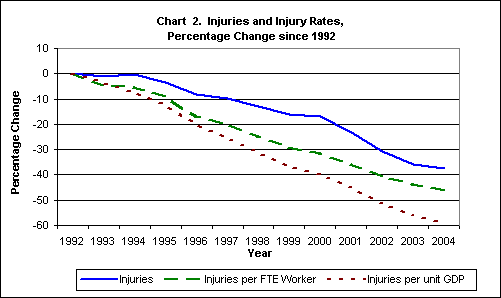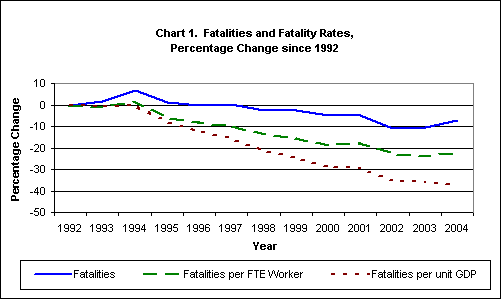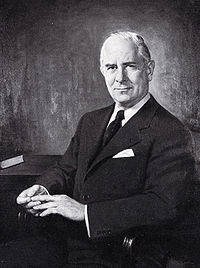Matthew Yglesias's Blog, page 2395
March 9, 2011
First You Get The Votes, Then You Take The Vote
You've sort of got to admire the gritty determination of the Wisconsin GOP. I think when the Democrats first fled the state, the CW in DC was that the public would side with Governor Walker and they'd be forced to cave soon enough. Then when it turned out that the public was actually sided with the unions and the Democrats, the CW quickly became that there would have to be some kind of compromise. But of course there never had to be a compromise . . . the Republicans always had the option of just fiddling with procedure, ramming something through, and hoping they survive the ensuing recall drives. That just didn't seem to most folks like the kind of thing politicians would do. But they did!
Not to draw an equivalence between a bad bill and a good one, but what it reminds me of is congressional Democrats after Scott Brown's election. The early CW was that somehow Democrats "had to" back down in the face of their unpopularity. But they didn't have to do anything. They believed as strongly in universal health care as the Wisconsin GOP believes in crushing labor unions. So they passed the damn bill.


Endgame
Your sanity and wits may all vanish:
— Which active labor market policies work in a recession (PDF)?
— Policymakers aren't paying enough attention to the risk the recovery will stall.
— The evils of DVD clearance fees.
— Maybe the new styrofoam garbage John Boehner is bringing back to the House should be dumped in his district.
— DC .
— Somehow it took Vince Gray six months to conclude that Michelle Rhee's deputy should fill the vacancy left by Rhee's firing.
Gogol Bordello, "Start Wearing Purple".


"Great Migration In Reverse" aka Black People Doing The Same Thing As Everyone Else
Ta-Nehisi Coates sees a "Great Migration in reverse" lurking in the Census data. He quotes this:
Historically, the South was home to roughly 90 percent of the nation's blacks from 1790 until 1910, when African-Americans began to migrate northward to escape racism and seek jobs in industrial centers such as Detroit, New York and Chicago during World War I. After the decades-long Great Migration, the share of blacks in the South hit a low of about 53 per cent in the 1970s, before civil rights legislation and the passage of time began to improve the social climate in the region. [...]
The nation's black population grew by roughly 1.7million over the last decade. About 75 per cent of that growth occurred in the South – primarily metropolitan areas such as Atlanta, Dallas, Houston, Miami and Charlotte, N.C. That's up from 65 per cent in the 1990s, according to the latest census estimates.
To me that mostly sounds like black people are moving to the same metro areas as everyone else. Atlanta, Dallas, Houston, Miami, and Charlotte in the south and Los Angeles, Phoenix, and Las Vegas outside the south. After all, the basic dynamic of weak job opportunities in the midwest and no affordable housing in the northeast applies regardless of skin color. What's more, this is really not a reversal of the Great Migration in any meaningful sense. Texas wasn't a major historic African-American population center and it strains credulity to describe Miami as part of the south. If black people start leaving Chicago to move to rural Mississippi that be a reversal, but this is the same sun/permit-driven migration that everyone's doing.


The Vilsack Interview

I've been trying to think of something to say about Ezra Klein's brilliant interview with Tom Vilsack on subsidizing rural America.
What I've got is that while I don't think that the subsidization in question is the worst thing in the world, I feel like the failure to appreciate that it's even happening is a huge distorting influence on our politics. The issues here extend well beyond the direct monetary payments to American farmers to include trade barriers to imported agricultural products, the structure of federal highway spending, special federal programs to subsidize rural broadband internet and rural aviation, numerous targeted state-level rural development programs in mixed states like New York, and failure to appropriately price water and other natural resources. That's what you get from a political system that says Wyoming, Vermont, North Dakota, Alaska, and South Dakota should have equal representation to California, Texas, New York, Florida, and Illinois (who combine for over 35 percent of the population) and there's nothing you can do about it.
What you can do, however, is at least have a political culture that acknowledges that this is one of the principle functions of the federal government. Rural America often seems to me to have a bad case of Keep The Government Out of My Medicare Syndrome that we could do without. Under the circumstances, I think Secretary Vilsack's willingness to acknowledge the basic shape of what's going on and defend it is a step in the right direction.


Why Washington DC Can't Have Nice Things

The Wisconsin Newark Neighbors Coalition (aka history's greatest monsters) is getting their day in court to block a mixed-use supermarket project:
Last July, the Zoning Commission gave their unanimous approval of the project, to which WNNC responded by filing an appeal, claiming that the Zoning Commission does not have the power under the PUD (zoning change approval) to eliminate a neighborhood commercial zone designation on the subject lots. In short, WNNC objects to the changes incurred in the rewriting of the Comprehensive Plan that was first drafted in 2006 that they perceive will increase height of the project and density of the area.
WNNC wants the city to revise the PUD as a two-stage application, and have asked the court to overturn the Commissions decision to grant the PUD within a neighborhood commercial overlay zone district, in what is a fairly typical zoning decision, claiming the Commission lacked authority.
Note that in addition to the badness on the merits of the goals being advanced (sprawl, lack of affordable housing, lack of job opportunities) here there mere existence of so many hurdles a project needs to clear is a huge deterrent to investing in the District of Columbia. Putting lots of discretion into the system may sound like a good idea, but clear rules are really helpful to making business opportunities attractive.


Workplace Safety
As an addendum to the post below, let me note that I worry some folks might get the impression from Mike Konczal's post on Nickel and Dimed that America has lately become a cesspool of workplace injuries. According to Maury Gittleman and Brooks Pierce at the Bureau of Labor Statistics this is not at all the case and workplace injuries have been declining for years:

The fatality rate has also been declining, though not as sharply:

The dangerous sectors in terms of illness and injury are "transportation and warehousing" followed by manufacturing followed by "agriculture, forestry, fishing, and hunting" followed by construction. The picture looks a bit different for fatalities with manufacturing suddenly looking safer.
All-in-all, though, it looks like an impressive achievement to me and one the hard-working folks at the National Institute for Occupational Safety and Health deserve some credit for, along with overall economic progress and structural shifts into safer occupational categories. This sort of thing gets too often overlooked in the macro sense even though we're well aware of it on the micro level. Everyone knows that the dudes on The Deadliest Catch are earning a risk/unpleasantness premium for participating in a workplace so unsafe there's a TV show about it. This same tradeoff exists on a social level to an extent, and thanks to the declining marginal utility of money it makes sense for a richer society to start putting more emphasis on avoiding injury and death in working class occupations and less on maximizing cash wages. It's unfortunate in this context that despite these workplace safety improvements we still seem to lag well behind peer countries in terms of overall chronic disease, perhaps due to our low-performing health care sector.


The Dangers of Make-work Liberalism

(cc photo by MPD01605)
Mike Konczal has written about what he sees as the problems with "pity-charity liberalism, where the goal of the liberal project is to give some sort of ex post compensation for brute bad luck instead of giving workers agency or power."
Somewhat in that spirit I want to complain that in response to overreaching rightwing attacks on public services, I feel like I'm seeing a lot of people come dangerously close to explicit advocacy for what I'd call "make-work liberalism," where the goal of the liberal project is to offer direct public sector employment to as many people on as generous terms as possible rather than try to actually make the economy work. This is brought to mind by recent blogospheric interest in technological change and the ever-recurring question of where the jobs of the future will be as automation allows for less labor-intensive production in many sectors of the economy. One potential answer to that query is that public sector work can be made as arbitrarily labor-intensive as you like. A town can always hire an extra teacher or firefighter or bus driver. You can simply decline to replace toll booth attendants with EZ-Pass machines. And public sector works exists in an appealing way all up and down the skill spectrum. There are lawyers and doctors and college professors working for public institutions, but also janitors and road construction. There are butch jobs (cops) and femme jobs (nurse) and above all else there are the stable middle class career paths of alleged yore with stepwise raises and a pension at the end.
There's a lot to like about this, but it's important to recall on some level that a world where ten rich bankers pay the taxes to finance make-work jobs for ninety other people isn't an alternative to a pity-charity version of economic justice it's just a way of hiding the ball.
I think it's important not to do that. The important thing about public services is the provision of services, not the provision of jobs. The right question to ask about firefighters' pensions isn't a moralizing one, it's a practical one—will reducing them imperil public safety in some important way? The answer is sometimes that, yes, you really do need to stand up for the public sector. Congressional efforts to "de-fund" various regulatory agencies and/or push for staffing reductions or salary freezes is a clear effort to do an end-run around enforcement of environmental, labor, civil rights, and financial regulation. But the point of our local transit agency is to provide transportation services, not to improve the living standards of bus drivers and it's possible for public sector personnel expenditures to be wasteful even without it being the case that the janitors at the DMV are the real fat cats of our time or any such nonsense. Over the longer run if you can make the private economy work to provide growth and jobs and income, then the public sector needs to be generous to be competitive. But the reverse strategy of building up a generous public sector as the lever for producing an income-generating economy doesn't work.


Bargaining Power

I got a question the other day about what does it mean to strengthen workers' "bargaining power" in a policy context. Does that just mean more union density? Well it certainly could, but I think the biggest impacts of unions are on voice and politics not aggregate labor market outcomes (this is probably worth a post of its own).
We should probably just start by thinking of bargaining power pretty literally. Your bargaining power is pretty directly related to your ability to say "hey, f— you, I quit!" What are the main barriers to quitting? Obviously right now, high unemployment is a huge barrier. Macroeconomic policymakers need to take full employment seriously. Health care is also a huge issue in the United States that makes workers more risk-averse about quitting than they would be under either left-wing or right-wing alternatives to the status quo. The regulatory complexity of starting a small business is another issue. People who own their own businesses are happier than the rest of us, so employees of firms ought to get paid a premium. But in an environment when regulatory agencies can't even tell you what you need to do to comply with their business-starting regulations this channel doesn't operate optimally. Education matters. There are lots of illiterate people in the United States, and if you can't read it's hard to find out about possible job opportunities. Then there are barriers to mobility. Housing costs in high-productivity metro areas are higher than they need to be, which is a barrier to quitting your job to strike out for brighter prospects elsewhere. Last, the US is very weak in terms of "active labor market policies" and continuing vocational education. Our current landscape is quite punitive toward people who made choices in their late teens and early twenties that didn't work out well and provides very little opportunity to revise one's approach later.
Last, the right kind of immigration policy matters, though not in the way that people often seem to think. If we flooded the market with monolingual English speaking high-school graduates lacking in other kinds of specialized skills, that would be a big problem for the typical American. But obviously that's (rightly) not what our existing policies do. We ought to keep on not doing that (sorry, Bahamians) to a greater extent by creating a legal flow of low-skill monolingual Spanish speakers and creating a new flow of higher skilled individuals.


Commerce Cabinet Crisis XII: Charles Sawyer

Charles W. Sawyer, who took over the Commerce Department upon Averell Harriman's departure, actually did something noteworthy as Secretary of Commerce! Specifically, when the Truman administration seized the Youngstown steel mills, it was Sawyer who was ordered to do the seizing in his capacity as head of the Department of Commerce.
Earlier in life, Sawyer had been an important figure in Ohio politics. The only post he held there was Lieutenant Governor, but throughout the 1930s Sawyer led a faction of the state Democratic Party that engaged in incessant feuding with the Martin Davey faction, leading on several occasions to GOP gubernatorial wins against a split Democratic Party. He was also US Ambassador to Belgium in 1944-45 but I suppose Belgium was under Nazi occupation and Allied military administration for the majority of that period.


Fighting Poverty By Giving Homeless People Money

(cc photo by andrei carol)
One of the big things we need to change as a society is to start treating poor people with more respect. Poor people, by definition, don't have much money. And lack of money leads to a lot of problems. Oftentimes, these problems are best attacked at the source. Here's an interesting Economist article about trying this approach on London's homeless. The Joseph Rowntree Foundation found people who'd been on the streets for between four and 45 years and "Instead of the usual offers of hostel places, they were simply asked what they needed to change their lives."
It's not a miracle cure, exactly, but it seems to work pretty well:
One asked for a new pair of trainers and a television; another for a caravan on a travellers' site in Suffolk, which was duly bought for him. Of the 13 people who engaged with the scheme, 11 have moved off the streets. The outlay averaged £794 ($1,277) per person (on top of the project's staff costs). None wanted their money spent on drink, drugs or bets. Several said they co-operated because they were offered control over their lives rather than being "bullied" into hostels. Howard Sinclair of Broadway explains: "We just said, 'It's your life and up to you to do what you want with it, but we are here to help if you want.'"
This was only a small-scale pilot project—though its results have been echoed by others elsewhere in Britain—but it underlines the importance of risk-taking in the provision of public services. In this case, although finance directors (and many voters) might balk at buying the homeless caravans, the savings should outweigh the costs. Some estimates suggest the state spends £26,000 annually on each homeless person in health, police and prison bills.
Malcolm Gladwell (whose work has become unfashionable for reasons I don't really understand) wrote a brilliant article on a similar theme, also with regard to homelessness, five years ago where he rightly observed that our sense of folk morality tends to get in the way of addressing this sort of issue optimally. After all lots of people might like $1,277 worth of stuff. I, for example, got a notice in the mail today from the Internal Revenue Service suggesting that I owe approximately that much in back taxes due to some improper filing in the past. So why should that money go to homeless people when I could use it too? Current spending on the homeless is already much higher than that, but it overwhelmingly consists of the in-kind provision of services—shelter beds, addiction treatment, incarceration, frostbite relief—that most of us don't actually want. From a rationalist perspective we can see that helping people in cheaper but more dignity-respecting ways will ultimately end up with all of us having more money in our pockets. But to get there you need to move past the impulse toward scolding moralizing.


Matthew Yglesias's Blog
- Matthew Yglesias's profile
- 72 followers



